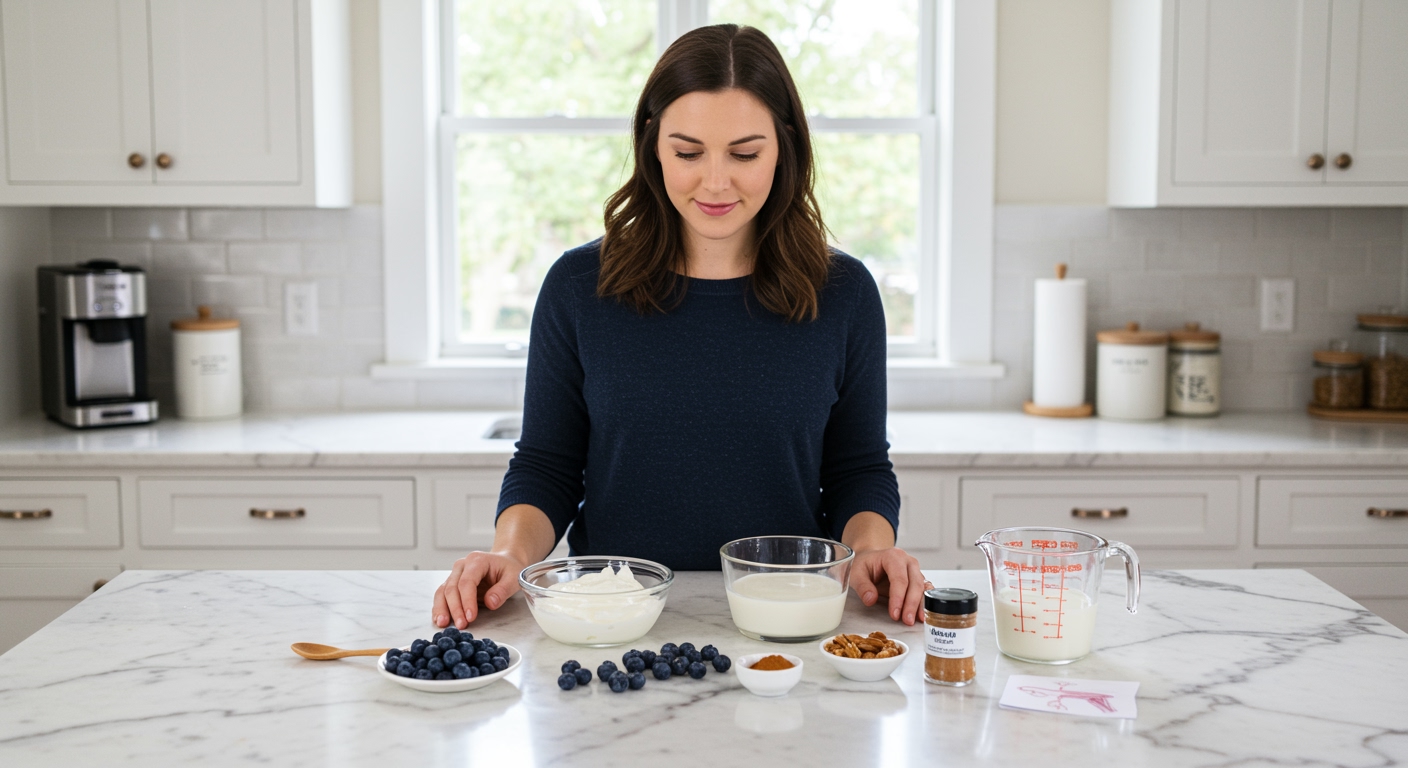✪ Key Takeaway: Butter is not always bad for PCOS when you choose grass-fed varieties and consume them in moderation as part of a balanced diet.
Introduction
You open your fridge and stare at that stick of butter, wondering if it will make your PCOS symptoms worse.
Many women with PCOS avoid butter completely because they believe all saturated fats are harmful to their condition.
Hi, I am Abdur, your nutrition coach and today I am going to explain why butter is not always the enemy for PCOS management.
What Makes Butter Different From Other Fats?
Butter contains unique fatty acids that your body processes differently than other saturated fats.
The butyric acid in butter supports gut health by feeding beneficial bacteria in your digestive system.
Grass-fed butter provides conjugated linoleic acid (CLA), which may help reduce inflammation and support healthy body composition.
Your body uses the fat-soluble vitamins A, D, E, and K found in butter for hormone production and cellular function.
These vitamins work together to support your reproductive system and help regulate insulin sensitivity.
✪ Fact: Grass-fed butter contains five times more CLA than conventional butter from grain-fed cows.
How Does Butter Affect Insulin Resistance?
Pure butter contains zero carbohydrates, which means it does not directly spike your blood sugar levels.
The saturated fats in butter can actually slow down the absorption of carbohydrates when eaten together.
This slower absorption helps prevent the rapid insulin spikes that worsen PCOS symptoms over time.
Research shows that moderate amounts of quality saturated fats may improve insulin sensitivity in some women.
The key lies in choosing grass-fed butter and pairing it with fiber-rich vegetables or low-glycemic foods.
Your portion size matters more than complete avoidance when managing insulin resistance with PCOS.
✪ Pro Tip: Use one teaspoon of grass-fed butter to cook your vegetables for better nutrient absorption.
Can Butter Support Hormone Balance?
Your body needs adequate cholesterol to produce hormones like testosterone, estrogen, and progesterone.
Butter provides the building blocks your ovaries and adrenal glands use for hormone synthesis.
Very low-fat diets can actually worsen hormonal imbalances by restricting these essential nutrients.
The vitamin K2 in grass-fed butter helps your body use calcium properly and supports bone health.
Women with PCOS often have higher rates of bone density issues due to hormonal imbalances.
Including moderate amounts of quality butter may help support your overall hormonal health when part of a balanced diet.
✪ Note: Hormone production requires both cholesterol and fat-soluble vitamins found in quality dairy products.
What About Inflammation And Dairy Sensitivity?
Some women with PCOS experience dairy sensitivity that can increase inflammation throughout their body.
Butter contains very little lactose and casein, the two main components that cause dairy reactions.
Many people who cannot tolerate milk or cheese can still enjoy small amounts of high-quality butter.
The clarified butter or ghee removes even more of the potentially problematic milk proteins.
If you notice increased acne, bloating, or joint pain after eating butter, you may need to avoid it completely.
Your individual response to dairy products matters more than general recommendations for PCOS management.
✪ Pro Tip: Try ghee first if you suspect dairy sensitivity but want to include some butter-like fat in your diet.
How Much Butter Is Safe For PCOS?
Most women with PCOS can safely include one to two teaspoons of grass-fed butter daily.
This amount provides beneficial nutrients without contributing to excessive calorie intake or weight gain.
Focus on using butter for cooking vegetables rather than spreading it thick on bread or crackers.
The quality matters more than the quantity when choosing butter for PCOS management.
Grass-fed, organic butter from pasture-raised cows provides the most nutritional benefits.
Always balance your butter intake with plenty of fiber-rich vegetables and lean proteins for optimal results.
✪ Fact: One teaspoon of butter contains about 34 calories and 4 grams of fat with essential fat-soluble vitamins.
The Bottom Line
Butter is not automatically bad for PCOS when you choose grass-fed varieties and consume them in appropriate portions.
Quality and quantity matter more than complete elimination when managing PCOS through nutrition.
I would love to hear about your experience with butter and PCOS in the comments below, and feel free to ask any questions about incorporating healthy fats into your diet.
References
At NutritionCrown, we use quality and credible sources to ensure our content is accurate and trustworthy. Below are the sources referenced in writing this article:
- PMC: Dairy Consumption and PCOS
- PCOS Diva: The 7 Virtues of Butter for PCOS
- PCOS Nutrition: Dairy and PCOS
- Medical News Today: PCOS Diet Guide





